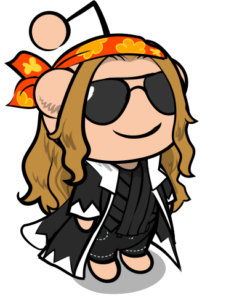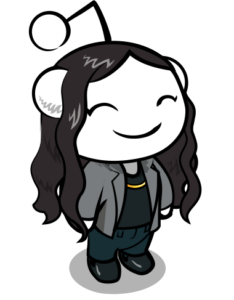
Opening a book is like opening a door to a whole new world. For many avid readers, the thought of owning and running their own bookstore is a dream come true. It can offer a sense of fulfillment and satisfaction to see people come in and leave with a book in hand. However, starting a bookstore business is no easy feat. It requires careful planning, research, and execution to make it a success. In this blog post, we will delve into the important aspects of starting a bookstore business and provide you with insights and tips on how to make it a thriving and profitable venture.
As we’ve already mentioned, launching a bookstore business is an incredibly daunting task. It can be hard to anticipate all the obstacles that may arise along the way. And, unfortunately, not all bookstore businesses manage to thrive and even survive. Here are a few comments from Reddit to get you down to earth.
|
– By AlcridPlacidity |
|
– By simtechonline |
|
– By trishsf |
If you’re still highly motivated and willing to face challenges, check out the step-by-step guide on how to start your bookstore business. Everything is possible for those who truly believe in their aspirations and have a genuine passion for reading.

We’re in our early 30’s and this is my wife’s dream. So it’s definitely not “Hey lets open a book store and make tons of money”. Basically if we can make it work to still be able to afford our current living standards, we’re fine (I’m still keeping my job, which is decent paying). And if it fails, oh well, we’re still young enough to recover. But my wife let me follow my dream and supported me (and now I have my dream job), so it would be kind of shitty for me not to support her, especially since everything is falling into place for it right now. This is definitely her passion, so if anyone can make it succeed, she can. – By newbookstore |
1. Conduct Market Research
Before starting a bookstore business, it is important to conduct market research. You need to identify your target market, the competition in the area, and the demand for books. You should consider factors such as the demographics of the area, the interests of the community, and the types of books that are popular in the region.
|
I ran a bookshop some fifteen years ago and it flopped very badly because I could not decide which books should be kept. If you want to start an independent bookstore then here are my suggestions:
– By Nisaar Y. Nadiadwala |
You can start by visiting other bookstores in the area and observing what they offer, what their prices are, and what their customers are interested in. You may decide to focus on a particular genre like fiction, nonfiction, comics, or children’s books or on a type of book, e.g. paperback, hardcover, or softcover. For instance, you can open a local used bookstore that turns out to be a really appealing place for many book lovers:
|
As a consumer, I actually make it a habit that every time I’m in a new city, I check out their local used bookstore. The bookstore experience is all about the hunt and the people; you meet the most amazing people working at used bookstores, people who really know their inventory and whom you can have amazing conversations with. These become neighborhood institutions because they hold inventory you can’t locate anywhere else and sometimes it’s insanely specific to the region they’re in. When I lived in Massachusetts, I found the craziest books I knew I’d never find in Florida or Texas or Washington. I always find something of value that I would NEVER find online. That’s the awesome part of used bookstores, it’s nearly impossible to replicate online and the experience is not about the price but of the product. – By deleted |
This information will help you identify your niche and develop a business plan that meets the needs of your target market.
By the way, if you want to fully immerse yourself in the bookstore business, find out all the peculiarities of the “internal kitchen,” and determine whether this kind of venture is really your vocation, there’s no better way than to put yourself in a bookstore worker’s shoes:
|
Honestly, I think the answer is first to get a job at a small business (ideally a locally owned bookstore or cafe based on your interest) and get a feel for it. The thing about a job is that the overall sense of it doesn’t mean much when you’re thinking about the daily tasks involved. You’re not going to get to read lovely books every day. You have to deal with customers, order supplies, open it in the morning/close it at night, clean up every spill or broken mug, handle the payroll, pay the taxes, and do every other bit of management needed. And sometimes you’ll have to make hard decisions between what you want it to be like and what is financially prudent. – By GimerStick |
2. Decide on a Location
Choosing the right location for your bookstore is essential. You want to be located in an area that has high foot traffic, is easily accessible, and has a strong demand for books. Look for a location that is visible from the street, has ample parking, and is located near other businesses that attract a lot of people. Besides, a bookstore is likely to thrive if it’s located in the vicinity of a college or university.
|
Tourist areas are great if you are selling paperbacks because folks want something to read while on the beach. |
You should also consider the size of the space you need to accommodate your inventory and the layout of the space. Additionally, you should research the leasing requirements and costs associated with renting space in your desired location.
3. Create a Business Plan
Before starting any business, it is important to create a business plan. Your business plan should include your goals, target market, marketing strategies, revenue streams, financial projections, and more. You may also need to include information on your suppliers, inventory management, and staffing requirements. It is an essential document that will guide you through the process of starting and running your bookstore business as well as help you stay organized and focused on your goals.
 Economists here. A couple of things to remember…
Economists here. A couple of things to remember…
Even the chain bookstores who enjoy large economies of scale are having a hard time meeting costs. For example, you have a small shop where you must pay rent ($1500), utilities ($500), and other sundry expenses. Let’s say at the end of the day you must pay $2500 before you ever pay the first paycheck or even buy the first book to place on your shelf. If two people work ten hours per day, 6 days per week, assuming a $10 per hour wage rate, that’s another $4800 per month.
Between wages and expenses we’re up to $7300 per month in expenses. Assuming a 40% markup on all books sold (and assuming that the average hard-back book costs $20 retail), you would need to sell 38 books per day, every open day, just to break even. I would be curious if a small boutique shop can meet those numbers. In the middle of a large city, yes… but then your rent will be much, much higher and thus the number of books which would need to be sold.
Note that the large book sellers now have coffee bars up front, not b/c they love coffee, but because the markup is so much more than on a book. In this way they subsidize the book operation.
Finally, you have the initial out-of-pocket expenses. Again assuming a 40% markup and the average price of a hardback book being $20 retail, for you to open the doors with 2000 books, that’s an initial outlay of $24,000 plus the renovation of your shop, plus bookshelves, plus registers, plus etc. etc. etc. Assume an initial outlay of between $30,000-$50,000.
Wrapping up: most of these things I’m sure you’ve thought of. If you’re opening a bookstore b/c you love books and readers and this is your long term hobby, I wish you the best. If, on the other had, you are opening with the thought of earning a living and preparing for the future, then the numbers are against you… By Russiophile
– By Russiophile
If you’re unsure how to create a business plan, there are free online resources available such as those provided by the U.S. Small Business Association (SBA). Additionally, you may want to consider taking an online course or class at a local community college to gain knowledge on small business operations.
4. Choose a Name and Register Your Business
It is not mandatory to trademark the name of your bookstore, which can be a costly and intricate process. Nonetheless, safeguarding the name of your bookstore by registering it with your state government prevents it from being utilized by others. Choose a name that is memorable and easy to spell. Once you have a name, you need to register your business with the appropriate state and local authorities. It’s also important to choose your business structure (sole proprietorship, LLC, or partnership) and get tax identification numbers. By the way, if you own a bookstore in the United States, you can acquire an employer identification number (EIN) without any hassle by visiting the IRS‘s website. To begin managing your bookstore’s finances, open a business bank account to maintain a clear separation between your personal and business finances.
5. Obtain Necessary Licenses and Permits
Depending on your location, you may need to obtain certain licenses and permits (such as a local retail permit and business license) to operate your bookstore business legally. Check with your local authorities to find out what licenses and permits you need. As to obtaining funding, there are several ways, including seeking investors, applying for loans, or using personal savings. You should also consider the costs associated with running your business, such as utilities, employee salaries, and business insurance.
6. Find Suppliers
To start a bookstore business, you need to have a reliable supplier of books. You can find suppliers through book wholesalers, distributors, or publishers.
|
Three months before I opened my little used books store, I hit every yard, garage and estate sale I could find looking for books. Any sale that had books I would quickly estimate how many books they had (count one shelf or box and multiply by how many shelves/boxes there were), figure a dime per book and round down to an even number, then make the offer. I would get one of two responses: “Well, I kinda was looking for a little more for them,” or “I’ll help you pack!” In three months I had enough books to fill a 1000 sq ft store in all the popular genres. Once I opened, I never had to worry about inventory, as all I ever needed walked in through the front door. – By Lynne Benedict |
Research and compare prices and terms to find the best supplier for your business. Furthermore, you should create a system for managing your inventory, such as a point-of-sale system or inventory tracking software.
|
There is an old program called Indaba that can be used to control inventory as well as list the books online (on multiple sites at once). When the book is purchased from one site, the program automatically takes it off of the others. There is also a company that makes custom POS and inventory systems, it’s called Ucentive. Ucentive runs out of Salt Lake City and they work directly with clients to give them exactly what they want. Another thing, if you are interested in adding textbooks to your inventory, companies such as Follett, Nebraska Book Co, and MBS all have affiliate programs where they will purchase books that they need from you. They give out a book list which tells you the price that they will pay for the books, which gives you an opportunity to set a profit margin when you buy books. – By Ballzdeepbro |
7. Set Up Your Store
Once you have found a location, registered your business, and obtained the necessary licenses and permits, it is time to set up your store. Invest in bookshelves, display cases, comfortable seating, and other furniture to make your bookstore inviting and comfortable for different types of customers.
|
– By jkos123 |
If you, by any chance, still not sure about your desire to open a bookstore or need ideas on how to visualize and arrange it, just take a look at this Reddit user’s comment that inspired us immensely.
 I don’t have the resources right now but I’ll definitely open a bookstore someday. I love books and my city needs a decent bookstore (THERE IS NOT A SINGLE GOOD BOOKSTORE IN MY CITY !?!?!!!!!?!!?!). I understand that it’s a passion project and might not earn me much or anything at all but I’m willing to go broke for it. I keep thinking about its infrastructure; high ceilings, buttloads of plants, walls filled with books. My body bursts with happiness just by thinking about it. I’ve decided to keep second hand as well as fresh copies, which will allow for book signings. There’ll be a little corner dedicated to promoting artwork and music by lesser-known artists. Might have a book club, might give books on rent and give it a library touch. A small suggestion box, books in Braille, and wheelchair accessibility. I thought about having a cafe/bakery but then someone will have to constantly monitor the space to make sure the books don’t get stained, seems a bit chaotic overall. A good way could be to not have an eatery inside your bookstore but next to it. I hope you open that bookstore and have the best time of your life. – By jkjkjkjjkjsike |
As a small independent bookstore owner, it’s important to consider offering additional products to enhance your customer’s experience and increase profits. While books may have a low-profit margin, your customers will value the unique experience they get from shopping at your store. To reinforce this experience, you could consider adding a small cafe or wine bar, as food and drink typically have higher profit margins. Additionally, selling branded merchandise such as t-shirts, hoodies, and coffee mugs can help you make money while also promoting your store.
It’s important to keep in mind that you’re not just in the business of selling books, but also in the business of connecting with people. To foster these connections, consider hosting book clubs and events featuring guest authors. By doing so, you can incentivize and engage your community, bringing people together over a shared love of literature.
|
– By Marc Holmes |
|
Focus on things that reward people who come into the shop. They call that experiential marketing these days.
Wow – These are great ideas! I’m opening a bookstore!!! – By Marc Holmes |
8. Hire Staff
As your business grows, you may need to hire staff to help with day-to-day operations. Look for people who are passionate about books and have excellent customer service skills. Having employees who are well-informed and attentive can distinguish your store from others and retain customers.
|
Hire a staff who is excellent at organizing the bookshelf. That should be his interview. Give him a shelf and check how minutes he takes to arrange the books neatly. – By Nisaar Y. Nadiadwala |
|
…a lot of bookshops I go in could use a few lessons on how to treat customers….a little respect, a smile and a nice ‘hello’ will go a long way. You sort of need to strike a balance between interaction and detachment….people need to feel welcome AND welcome to browse AND able to approach you for info….a difficult skill to get exactly right. Hard sell in a bookshop is just wrong and won’t work IMO. – By phil299 |
9. Market Your Business
Marketing is essential for any business, and a bookstore is no exception. You should develop a marketing plan that includes advertising, social media, and events. You may also want to consider partnering with local schools, libraries, and book charity organizations to promote literacy and education in your community. Additionally, you should create a website or online store to sell your books and reach customers beyond your local area.
|
It all depends on your inventory – if you sell newer books and paperbacks then you can do okay with browsing visitors but if you sell rare or older books then you are better using a site like Biblio or AbeBooks. You get better exposure and your inventory is literally open to the world to buy. I do far better selling online than what my dad did with his stores, and that is based on several decades of both of us selling. – By simtechonline |
Use social media, flyers, ads, and other marketing strategies to promote your business and attract customers.
|
Put up or hand out flyers in the areas where people are commonly reading. It depends on your location as to where that is. Parks are a good choice in lots of areas. Ask at the local library. They may or may not let you put up a flyer on their bulletin board, but they might be willing to hold onto a couple business cards for people looking for something they do not have. Create a Facebook and/or other social media accounts for the business. Join Facebook groups dedicated to books or reading that are local to your area and try to promote yourself in them. Be sure to follow the rules of the group. Most have anti-spamming rules, but many also offer a space or time-frame to promote yourself as well. – By Keith Vincent Tucker |
|
Most online Bookstores thriving today have something unique. Great discounts, free shipping, or some of them cater to a particular customer set like students, or the scientific community and the alike. So, you will have to stand out and get noticed. |
Final Thoughts
Starting a bookstore business can be a fulfilling and profitable venture for those passionate about literature and community. By researching the market, identifying a niche, securing a location, developing a business plan, and creating a welcoming atmosphere, entrepreneurs can establish a successful bookstore.
Starting a book shop in this day and age requires courage, a special niche or foolishness – perhaps a little of all three.
– By Lino P. Matteo
It is important to remember that the book industry is constantly evolving and adapting to new technology, so it is crucial to stay informed and flexible. With hard work and dedication, your bookstore can become a thriving business and a beloved community gathering place for book lovers. Good luck on your entrepreneurial journey!

 My friends owned a book store for 15 years and the only advice they ever gave me was “dont open a book store”. The only way they came out ahead was property value. After losing about $5,000/year for 15 years the property went up about $500,000 because of new apartment complexes popping up all around them.
My friends owned a book store for 15 years and the only advice they ever gave me was “dont open a book store”. The only way they came out ahead was property value. After losing about $5,000/year for 15 years the property went up about $500,000 because of new apartment complexes popping up all around them. I also worked for a bookstore chain when I was younger and the same things happened there as with my father in his various book shops along the east coast: people steal books (the women with baby carriages were always the worst), customers are often rough with the books so they will get dirty, dogeared and dust jackets will be torn – especially when they let their kids loose in the store. Some folks will just want to come in and read and never buy.
I also worked for a bookstore chain when I was younger and the same things happened there as with my father in his various book shops along the east coast: people steal books (the women with baby carriages were always the worst), customers are often rough with the books so they will get dirty, dogeared and dust jackets will be torn – especially when they let their kids loose in the store. Some folks will just want to come in and read and never buy.  I used to work in a small bookstore. They went out of business 20 years ago. I love the dream but it’s highly unlikely that you will survive. The chains will eat you alive because they can afford to charge less and most people buy ebooks or buy online. I wish this wasn’t true because I miss the days of the small bookstores where we would talk literature and everyone knew your name and reading preferences.
I used to work in a small bookstore. They went out of business 20 years ago. I love the dream but it’s highly unlikely that you will survive. The chains will eat you alive because they can afford to charge less and most people buy ebooks or buy online. I wish this wasn’t true because I miss the days of the small bookstores where we would talk literature and everyone knew your name and reading preferences.



 Used bookstores attract a lot of quirky and interesting people. This can be a lot of fun, socially. Some of these people will also drive you crazy. 1-3% of these people will genuinely be crazy. ; )
Used bookstores attract a lot of quirky and interesting people. This can be a lot of fun, socially. Some of these people will also drive you crazy. 1-3% of these people will genuinely be crazy. ; ) I’ve never done it. (Opened a bookstore.) But I’d say the only possible plan is to be hyper-local. Focus on events that make your shop an active of the community.
I’ve never done it. (Opened a bookstore.) But I’d say the only possible plan is to be hyper-local. Focus on events that make your shop an active of the community.




